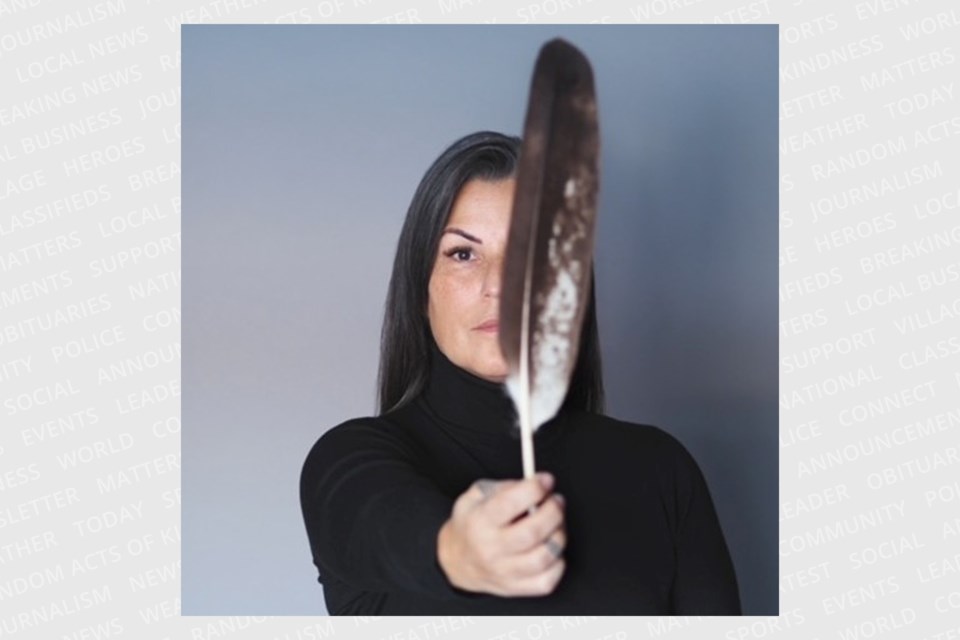When Karen Bird hears from corporate leaders looking to integrate land acknowledgements into their business dealings, the number one thing they say is holding them back is fear.
Fear of mispronouncing a name. Fear of forgetting a nation. Fear of revealing an unconscious bias.
But that fear is misplaced, said Bird.
As long as people educate themselves on the history of Indigenous peoples in Canada, learn more about truth and reconciliation, and make a sincere effort to incorporate what they’ve learned into their acknowledgement, their efforts will be appreciated, she said.
“When you’re speaking from truth, you can’t go wrong,” Bird said.
An Anishinaabe from Batchewana First Nation who lives in Sault Ste. Marie, Bird has more than 25 years of experience in the financial sector and now runs her own consulting firm, Little Thunder Consulting.
She was the guest speaker during a June 13 lunchtime webinar hosted by the Ontario Chamber of Commerce that centred on land acknowledgements in business.
Land acknowledgements must be more than a speaker rattling off a few throwaway lines before starting a meeting or conference, Bird said.
Speakers have to demonstrate that they understand why they’re acknowledging the land, and that begins with learning more about the issues that have shaped Canada’s history.
Studying the 94 Calls to Action stemming from the Truth and Reconciliation Commission, the principle behind free, prior and informed consent (FPIC), and the United Nations Declaration on the Rights of Indigenous Peoples (UNDRIP) are all good places to start, she advised.
A lesser known document, the Doctrine of Discovery, developed around the 15th century, outlined a set of guidelines that 'permitted' European explorers to acquire land and sovereignty over it, as long as any people living there were considered 'uncivilized' by European standards.
It’s these principles that explorers had in mind when they arrived in Canada, putting into place a colonial system that has disadvantaged Indigenous peoples for hundreds of years.
Remarkably, Bird noted, the Doctrine of Discovery was only rescinded on March 20 of last year.
Learning about these documents reduces misinformation and helps people understand the ongoing issues facing Indigenous peoples, she said.
“There is an entire system set up to keep our people in a certain box, at a certain economic level, at a certain social level,” Bird said.
“When you understand those things, and how prosperity in any of those areas is so tightly woven with the land, you’ll understand the significance of a land acknowledgement.”
Many people carry an unconscious bias of what it means to be Indigenous, based on erroneous portrayals in media or what’s been taught in schools, she noted.
Outdated are the images of peace pipes and ceremonies, people in full regalia with their faces painted, sitting cross-legged and living off the land, Bird said.
Indigenous peoples are doctors and business owners and lawyers, and more, who are learning to practise their culture while living in modern society, she added.
“Our culture is not the teepee; our culture is the discussion that happens in the teepee. Our culture is not the sweat lodge; our culture is the prayers that we say in the sweat lodge for the wellbeing of all mankind. Our culture is not sage; our culture is the offerings that we give for wellness, for healing, for repair, for awareness, for love, for that gratitude to Creator,” Bird said.
“The values in our culture is what we live today.”
Bird emphasized that there isn’t just one way to give a land acknowledgement. It needs to be tailored to the person giving it, based on the territory in which they’re speaking.
They should include a few standard items: naming the nation where the event is being hosted, acknowledging the treaty that applies to the nation, and some of the history of that treaty, Bird said.
She compares it to being invited to someone’s house for dinner: after they welcome you into their home, it’s common to express gratitude for their hospitality.
“What are all of the things that you enjoy today, on this land that you call Canada, because our people are sharing it with you?” Bird said.
“Think about that as your land acknowledgement. It’s not just all business.”
Importantly, Bird said, it’s not OK, in most cases, to ask an Indigenous person to give the land acknowledgement.
Indigenous people are “nearing burnout” in providing awareness and education, Bird said, and it’s now up to non-Indigenous people to take on the responsibility of educating themselves.
With so much information available to the public, it’s no longer acceptable to claim ignorance of the issues.
“You can’t use the excuse anymore (that) ‘We didn’t know,’ because things have been cracked wide open,” Bird said.
“So there is a higher standard of accountability that Canadians have to make yourself aware.”
